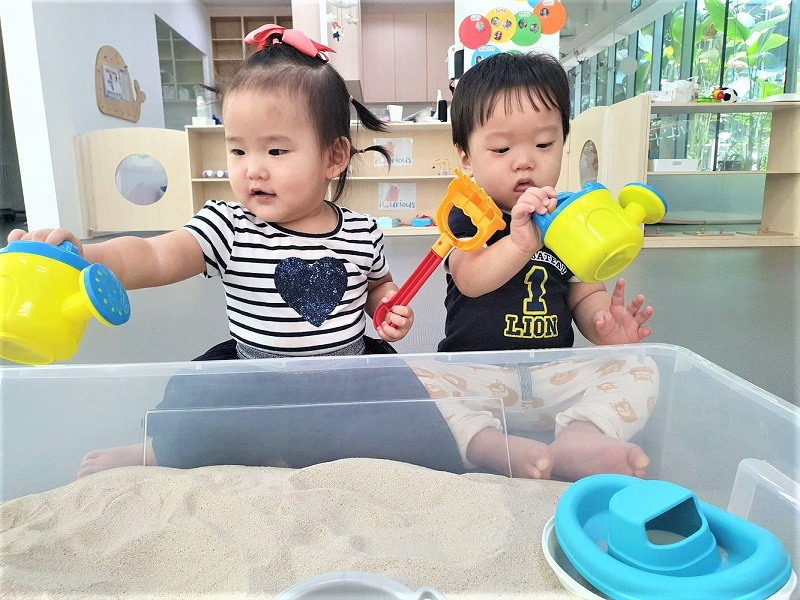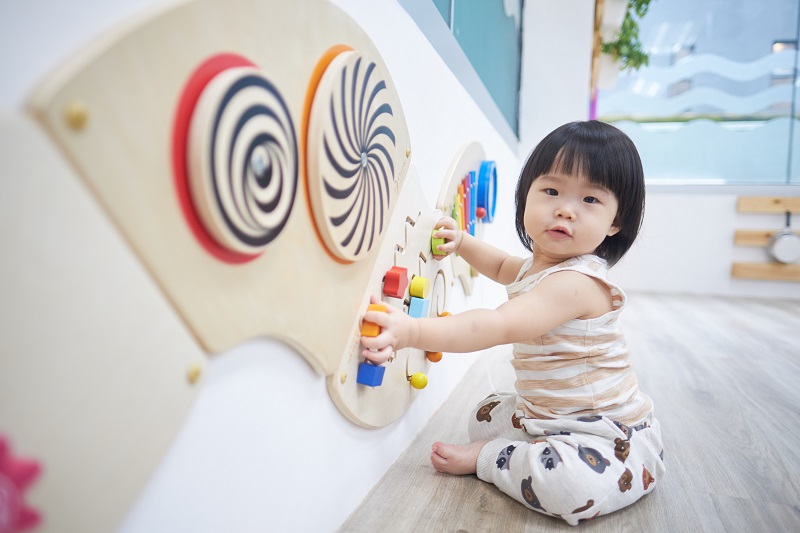
In the early years, children depend on their senses to explore the world and make connections between what they see, hear, taste, feel and smell.
Not only does sensory play helps to stimulate our five senses, but it is also crucial for developing a child’s cognitive skills and influences what and how our children learn about the world around them.
What exactly is sensory play?
Our senses are tied in with the way we learn and retain information. For example, the smell of chocolate chip cookies baking in the oven may remind you of your best friend’s favourite recipe. A snippet of a song on the radio may call to mind a delightful childhood memory.
For children, sensory play can be almost anything that involves engaging their five senses, such as moulding kinetic sand into various shapes, scooping dry pasta into recycled containers, or finger painting with food-coloured yogurt. It also includes kinaesthetic learning – movement, balance and spatial awareness.
Apart from aiding development, sensory play can often be a source of emotional comfort to many children. Tactile play can be quite soothing and it helps children to narrow their focus on what they are touching, smelling or hearing, while blocking out conflicting noise. Water is a particularly soothing form of sensory play, such as when they run water jelly beads through their little hands.

Benefits of sensory play for babies
As babies grow and develop, we provide opportunities for them to actively engage their senses and form new connections in their brains through play.
Many baby board books have little inserts in them with textures, such as fur, corrugated cardboard, or rough surfaces that are safe for little fingers to explore. This is one form of sensory learning that babies can embark on as they learn to respond to varied stimuli.
Benefits of sensory play for toddlers in playgroup
When children utilise the muscles in their fingers and hands for sensory play, they are actually exercising and fine-tuning their motor skills.
At the same time, using multiple senses through interaction with concrete objects also leads to the development of abstract ideas as they grow. Why does one block balance better than another? How can playdough be squeezed into the shape that they want?
Sensory play helps to build children’s cognitive skills, starting with the simplest skill of observation and leading to much more.

Benefits of sensory play for children in preschool
When children attempt to discuss their world and what they observe, they build their linguistic skills. Not only do they chat with their teachers as they receive guidance and input during sensory play, but they also chat with their friends, which helps with developing social interaction.
As children grow older and understand more about abstract thought, sensory play also stretches their creativity. What can they really do with kinetic sand? How else can they manipulate playdough? What kinds of music can be made if everyone is playing a different instrument?
Sensory play in Kiddiwinkie Schoolhouse
In our infant care programme, children explore a variety of everyday materials as they learn about colours, textures, and sounds. We also incorporate natural elements into play, with smooth rocks, dry leaves and twigs.
As children grow older, Kiddiwinkie Schoolhouse taps on purposeful play during the early years and progresses to guided inquiry-based learning for the preschool years. We focus on giving children opportunities to learn through play and exploration, particularly through our Playtinkers programme where children think critically and problem-solve creatively through loose parts play.
Keen to find out more about how sensory learning can benefit your child’s early development? Book a tour to find out more about how we can support you and why our curriculum can bring out the best in your child.
Follow us on social media to stay updated on our latest updates and happenings:





